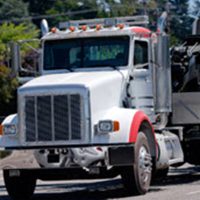What Is HB 19 And How Does It Affect Truck Accidents?

Commercial trucks cause some of the most serious accidents on the road that result in catastrophic injuries. Accident victims can incur hundreds of thousands of dollars or even millions of dollars in losses, such as medical expenses, unpaid wages, and more. If you have been injured, you are entitled to compensation for your serious injuries. Unfortunately, the law in Texas has recently made this more difficult. Below, our San Antonio truck accident lawyer explains further.
What is the New Law on Truck Accidents?
Texas House Bill 19 (HB 19) went into effect on September 1, 2021 and affects any truck accident that happened on or after that date and any truck accident where the lawsuit is filed on or after his date. Under HB 19, trucking companies can request a two-part trial when accident victims wish to file a claim against them.
The first phase of a trial will only examine the truck driver’s negligence, such as distracted driving or driving under the influence of alcohol. This portion of the trial does not allow evidence of trucking company negligence to be introduced or presented to the jury. In fact, a jury never even hears of the existence of the trucking company as a defendant in the lawsuit. HB 19 allows trucking companies to remain hidden from the jury – leaving them to wonder why injured person is not suing the trucking company.
If a jury finds the truck driver was negligent, only then can the second part of the trial proceed. During this phase of the trial, the negligence of the trucking company and the existence of the trucking company in the lawsuit essentially is hidden from the jury unless the exceptions below are applicable.
During the second part of the trial, evidence of a negligent truck company can be introduced. The trucking company can also be held liable during this portion for paying punitive damages. Punitive damages are not meant to make the accident victim whole, or compensate them for their losses. That is what the first portion of the trial is for. Instead, punitive damages are meant to punish the defendant for their gross negligence and deter them from such actions in the future.
There are many common examples of trucking company negligence that could result in punitive damages. Negligent hiring, training, and supervision, as well as hours of service violations are just two such examples.
There are Exceptions to HB 19
HB 19 essentially means that now, accident victims must first show the truck driver was negligent before moving forward and holding a trucking company liable for an accident. Like many other pieces of legislation, though, there are exceptions to the law. For example, if a trucking company failed to properly maintain their vehicles and that negligence caused a crash, this evidence could be heard during the first part of the trial without waiting for the other. Other examples of ordinary negligence claims against the employer that does not require a finding of negligence by the employee driver as a prerequisite can include, negligent training, negligent supervision, and negligent routing. There are also a laundry list of regulatory violations, including:
- Unlicensed driver;
- Disqualified driver;
- Driving while subject to an out-of-service order;
- Driving in violation of license restriction;
- No road test or equivalent;
- No medical certificate
- Driver on duty with a BAC greater than or equal to .04 (FMCSR § 382.201);
- Drinking alcohol while on duty (FMCSR § 382.203);
- Driving after a failed drug test (FMCSR § 382.215);
- Hours of Service Violations (FMCSR § 395.3, 395.5);
- Texting while driving (FMCSR § 392.80);
- Handheld phone use while driving (FMCSR § 392.82);
- Not providing the required application (FMCSR § 391.21) (only if the crash occurs within one year of employment);
- Refusing to submit to required drug test (FMCSR § 392.303-392.311) (only if the crash occurs within two years after the refusal);
- Failing to conduct pre-employment drug and alcohol testing (FMCSR § 382.301) (only if the crash occurs within 180 days of employment and employee was impaired by a controlled substance);
- Failing to check driving record and contact former employers (FMCSR § 391.23(a)) (only if the crash occurs within one year of employment);
A third exception is violations of regulations and standards if: (1) the violation was a proximate cause of injury or death; and (2) the regulation or standard is specific and governs, or is an element of a duty of care applicable to the defendant, the defendant’s employee, or the defendant’s property or equipment when any of those are at issue in the action.
HB 19 has made it more difficult for accident victims to claim full and fair compensation they need after a crash and suffering life-changing injuries. It is important to work with a San Antonio truck accident lawyer who fully understands the law, and who can explain how it applies to your case.
Our Truck Accident Lawyer in San Antonio Can Help You Claim Full Damages
If you have been injured in a truck accident, you may find it very challenging to claim the maximum damages you deserve. At the Law Office of Israel Garcia, our San Antonio truck accident lawyer can prove the facts of your case at every stage and give you the best chance of a successful outcome. Call us now at 210-LAW-9999 or contact us online to schedule a free consultation.
Source:
statutes.capitol.texas.gov/Docs/CP/htm/CP.72.htm
